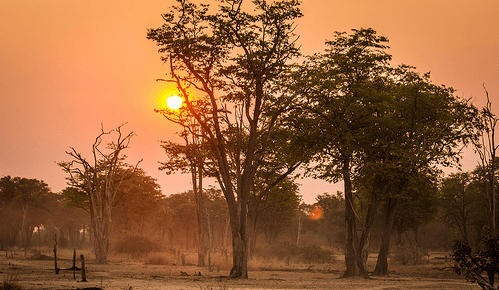L’Africa ha un ruolo importante nel ciclo globale del carbonio: uno studio pubblicato di recente sulla rivista Biogeosciences adesso lo conferma, valutando il bilancio del carbonio e dei principali gas serra (CO2, CH4 and N2O) del continente africano. Un gruppo di ricercatori (fra loro, anche R. Valentini, A. Bombelli, S. Castaldi, E. Grieco, M. Santini, R. Cazzolla Gatti, D. Papale e G. Vaglio Laurin della Divisione IAFENT del CMCC ha preso in esame le diverse componenti e i vari processi del bilancio del carbonio e dei gas serra in Africa, sia rivedendo dati già raccolti, sia acquisendo nuove informazioni da inventari, misure dei flussi degli ecosistemi, modelli e inversioni atmosferiche. È stata fornita anche una più accurata stima dell’incertezza.
I risultati dello studio ci raccontano come l’Africa sia attualmente un modesto sink di carbonio, per lo meno su scala annuale, ma che le emissioni dei gas serra, in particolare quelle di metano e protossido di azoto (CH4 e N2O), potrebbero trasformare il continente africano in una fonte di forzante radiativo in termini di CO2 equivalenti.
Fra i risultati forse più sorprendenti, che distingue l’Africa da tutti gli altri continenti, quello riguardante le emissioni derivanti dai cambiamenti di uso del suolo: persino più alte delle emissioni derivanti dall’uso di combustibili fossili.
L’abstract dell’articolo:
This paper, developed under the framework of the RECCAP initiative, aims at providing improved estimates of the carbon and GHG (CO2, CH4 and N2O) balance of continental Africa. The various components and processes of the African carbon and GHG budget are considered, existing data reviewed, and new data from different methodologies (inventories, ecosystem flux measurements, models, and atmospheric inversions) presented. Uncertainties are quantified and current gaps and weaknesses in knowledge and monitoring systems described in order to guide future requirements. The majority of results agree that Africa is a small sink of carbon on an annual scale, with an average value of −0.61 ± 0.58 Pg C yr−1. Nevertheless, the emissions of CH4 and N2O may turn Africa into a net source of radiative forcing in CO2 equivalent terms. At sub-regional level, there is significant spatial variability in both sources and sinks, due to the diversity of biomes represented and differences in the degree of anthropic impacts. Southern Africa is the main source region; while central Africa, with its evergreen tropical forests, is the main sink. Emissions from land-use change in Africa are significant (around 0.32 ± 0.05 Pg C yr−1), even higher than the fossil fuel emissions: this is a unique feature among all the continents. There could be significant carbon losses from forest land even without deforestation, resulting from the impact of selective logging. Fires play a significant role in the African carbon cycle, with 1.03 ± 0.22 Pg C yr−1 of carbon emissions, and 90% originating in savannas and dry woodlands. A large portion of the wild fire emissions are compensated by CO2 uptake during the growing season, but an uncertain fraction of the emission from wood harvested for domestic use is not. Most of these fluxes have large interannual variability, on the order of ±0.5 Pg C yr−1 in standard deviation, accounting for around 25% of the year-to-year variation in the global carbon budget.
Despite the high uncertainty, the estimates provided in this paper show the important role that Africa plays in the global carbon cycle, both in terms of absolute contribution, and as a key source of interannual variability.
Per approfondire e leggere tutti i risultati dello studio, vai all’articolo completo:
Valentini R., Arneth A., Bombelli A., Castaldi S., Cazzolla Gatti R., Chevallier F., Ciais P., Grieco E., Hartmann J., Henry M., Houghton R. A. , Jung M., Kutsch W. L. , Malhi Y., Mayorga E., Merbold L., Murray-Tortarolo G., Papale D., Peylin P., Poulter B., Raymond P. A. , Santini M., Sitch S., Vaglio Laurin G., van der Werf G. R. , Williams C. A. , Scholes R. J.
A full greenhouse gases budget of Africa: synthesis, uncertainties, and vulnerabilities
2014, Biogeosciences, 11, 381-407, DOI: 10.5194/bg-11-381-2014




